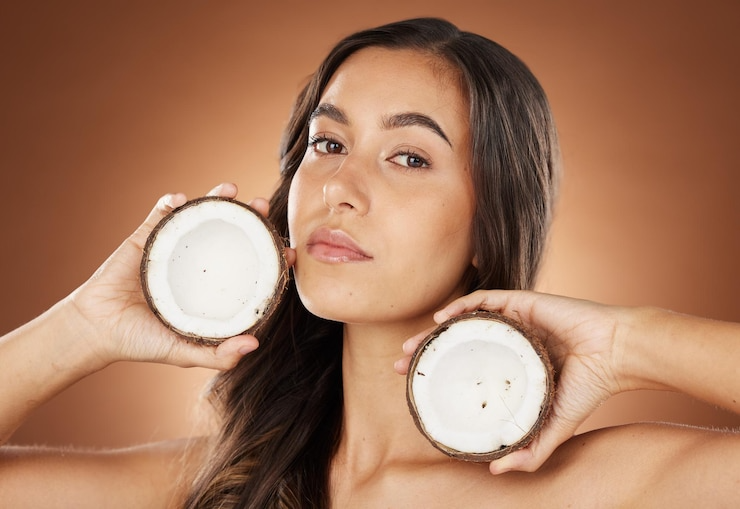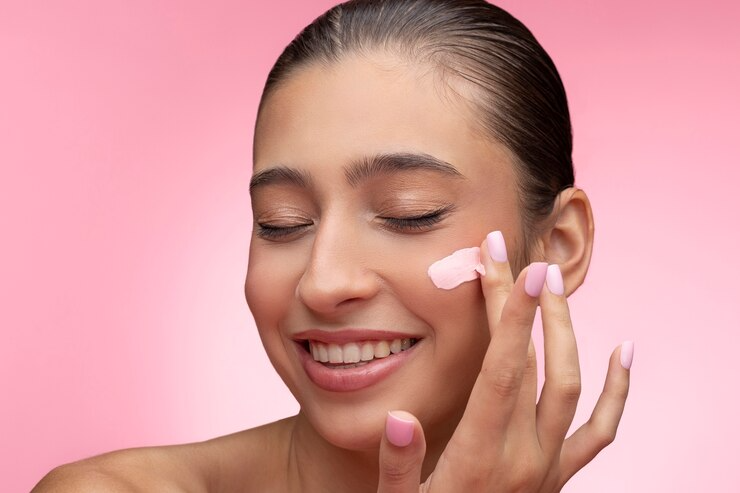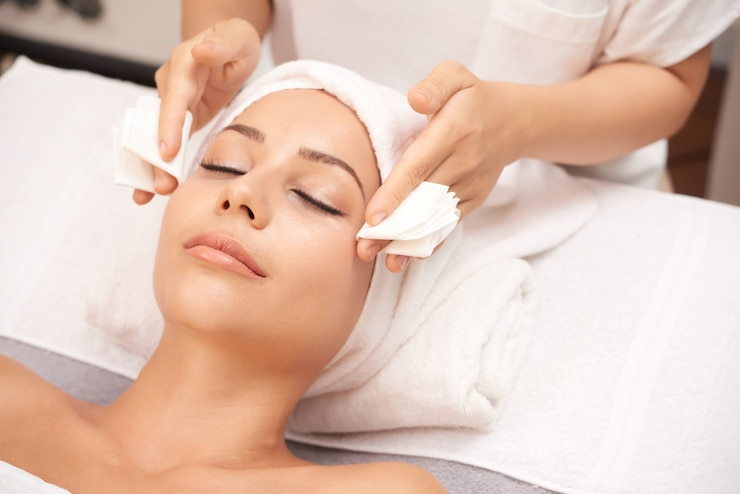The best facial skin care is essential for overall health and well-being. Glowing skin is often associated with vitality, while dull or dry skin can impact self-confidence. Fortunately, achieving healthy, radiant skin doesn’t require expensive products. This list of 10 suggestions highlights readily available options, utilizing everyday household items or simple lifestyle changes to incorporate into your personalized beauty and skincare routine.
1. Use coconut oil for smooth skin
While coconut oil has potential benefits for skin health due to its anti-inflammatory and antioxidant properties, it’s not suitable for everyone. People with coconut allergies or oily/acne-prone skin should avoid it. However, if it doesn’t irritate your skin, coconut oil can be used as a makeup remover, soothing barrier protectant, and even a moisturizer.
Apply a small amount, let it absorb for a few minutes, and then wash it off with your regular cleanser. Remember, even with its potential benefits, consult a dermatologist for personalized advice on the best skincare routine for your individual needs.

2. Use aloe vera to improve skin health
Aloe vera, known for its healing properties and ability to promote new cell growth, is a gentle option for most skin types. Unlike some moisturizers, it soothes and hydrates without clogging pores, potentially leaving your skin feeling healthy and glowing.
However, like any new product, it’s crucial to test for allergies by applying a small amount to your forearm and waiting 24 hours to ensure no reaction before using it on your face. If unsure or have any skin concerns, consulting a dermatologist is always recommended for personalized advice.

3. After face wash use moisturizer
Maintaining healthy, glowing skin involves using moisturizers that trap moisture, promote healing, and have antioxidant properties. While it might seem counterintuitive, even oily skin needs regular moisturizing to prevent dryness and irritation. Exfoliation should be adjusted based on your skin’s needs, not solely avoided during dry periods.
Apply it to damp skin after showering or washing your face to maximize the moisturizing effect. This allows the product to lock in the water layer present on your skin, offering deeper hydration. Remember, consulting a dermatologist can help create a personalized skincare routine that addresses your specific needs and concerns.

4. Wear sunscreen daily
Protecting your skin from the sun is crucial for maintaining its health and youthful appearance. Sunscreen with an SPF of 15 or higher is essential to prevent skin cancer and premature aging caused by harmful UV rays. Remember to apply sunscreen daily, even on cloudy or rainy days, as UV rays can still penetrate through clouds. This simple step can significantly contribute to healthy, glowing skin.

5. Cleansing routine
Striking a balance between cleansing and maintaining natural moisture is vital for healthy skin. Overwashing can strip away essential oils, while neglecting to cleanse allows dirt and sweat to build up, potentially clogging pores. Aim to wash your face three times a day: after sweating (like from exercise), first thing in the morning, and right before bed. This routine helps remove impurities without compromising your skin’s natural moisture barrier.

You should also read this;
6. Avoid smoking
Smoking not only harms your lungs and overall health, but it also significantly impacts your skin’s appearance. The chemicals in cigarette smoke act as toxins upon exposure, stressing your skin cells and accelerating premature aging. This translates to wrinkles, dullness, and a loss of elasticity. If you’re looking for another reason to quit smoking, consider the positive impact it can have on maintaining healthy, youthful-looking skin.

7. Drink enough water
While the exact science is still being explored, studies suggest a strong link between adequate water intake and healthy skin. Like all cells in the body, skin cells rely on water to function correctly. Staying hydrated can help maintain skin’s elasticity, plumpness, and overall health. Aiming for at least eight glasses of water per day is a good guideline, but individual needs may vary. Consulting a healthcare professional can help determine the optimal water intake for you.

8. Eat healthy
Nourishing your body with a diet rich in fruits and vegetables supports your skin health from the inside out. These foods provide essential vitamins and antioxidants that fight harmful free radicals and promote a healthy glow. Additionally, incorporating healthy fats like fish oils and limiting processed foods can further benefit your skin’s appearance.

9. Healthy probiotics
While the research is ongoing, some studies suggest that probiotics, known for their gut health benefits like improved digestion and immune function, also contribute to skin health. A 2014 study suggests a potential link between probiotics and healthy hair and glowing skin. However, more research is needed to fully understand the impact of probiotics on skin health and the specific strains that may be beneficial. Consulting a healthcare professional before starting new supplements, including probiotics, is crucial for personalized advice.

10. Do not take a long hot shower
While hot water can initially open pores and feel cleansing, exposing your skin to high temperatures for extended periods can be detrimental. It can strip away natural oils, leaving your skin dry and dull. Opt for lukewarm water and minimize shower time. Consider gradually lowering the water temperature towards the end of your shower to improve circulation. According to some studies, This might leave your face looking more toned and youthful and potentially even boost your immune system. Remember, consult a dermatologist for personalized advice on the best skin care practices for your needs.

Final words
Prioritizing gentle yet effective skincare routines is an investment in your overall well-being. While consistent care can lead to visibly glowing skin, remember that factors like stress, nutrition, hormones, and underlying health conditions can impact its appearance. Consulting your doctor or dermatologist is crucial if you have concerns about your skin’s health, such as dullness, dryness, flakiness, or patchiness. They can help identify underlying issues and recommend personalized strategies for achieving healthy, radiant skin.

[…] Best Facial Skin Care Remedies At Home […]